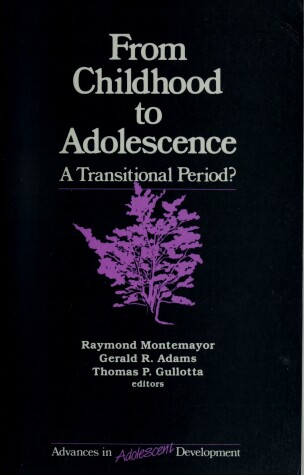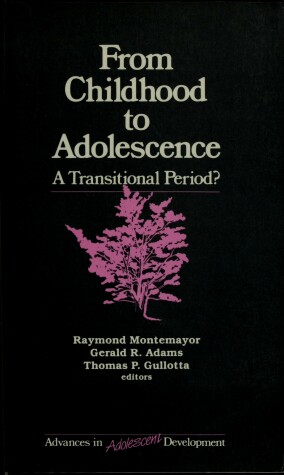Advances in Adolescent Development
4 total works
Adolescent Identity Formation
by Thomas Gullotta, Dr Raymond Montemayor, and Gerald R. Adams
The contributors examine the processes of identity formation, social and behavioural outcomes and management, social contextual factors and issues of alternative conceptualizations and measurement. They also address subjects such as women's identity and Erikson's notions of inner space, a multidimensional approach to ethnic identity and the influence of cognitive identity styles on ways in which adolescents cope with stress.
Biology of Adolescent Behavior and Development
by Gerald R. Adams, Raymond J. Montemayor, and Thomas P. Gullotta
From Childhood to Adolescence
by Raymond J. Montemayor, Gerald R. Adams, and Thomas P. Gullotta


